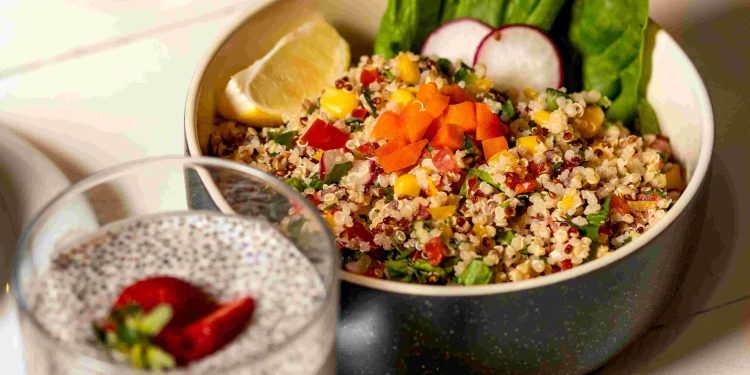Healthy Recipes for Quick Dinners

In a world where time feels like an endangered resource, the idea of cooking a healthy, balanced dinner can seem more like wishful thinking than a daily reality. But what if everything we’ve been told about eating healthy—time-consuming preparations, expensive ingredients, and complicated recipes—is not the truth we need to accept? Health and convenience are not opposites; they can blend harmoniously in your kitchen. All it takes is a shift in mindset, a little planning, and a willingness to challenge your assumptions about cooking.
Let me share a personal story. For years, I was enslaved by convenience foods. Between late meetings, social obligations, and family demands, I would often reach for pre-packaged dinners, thinking they were my only viable option. But over time, my energy dwindled, and I felt distant from my own well-being. It wasn’t until I embarked on an experiment—making 20-minute meals from scratch every evening for a month—that I realized how transformative this approach could be. It wasn’t just about food; it was about reclaiming control over my health and my time.
Why Quick, Healthy Dinners Are the Future
The cultural narrative that “fast equals unhealthy” has been ingrained in us for decades, but it’s time to rewrite that story. As technology accelerates the pace of life, people are increasingly seeking solutions that offer both efficiency and quality. Consider the rise of meal kit companies like Blue Apron or HelloFresh—they’ve capitalized on the demand for convenient, nutritious meals, proving we don’t have to choose between speed and health.
Psychology also plays a role here. Research from the University of Chicago demonstrates the positive impact of cooking on mental health, linking it to reduced stress and enhanced creativity. Cooking quick, wholesome meals allows us to experience these psychological benefits while still accommodating our fast-paced lifestyles.
Breaking Down the Science
Cooking healthy doesn’t require a deep knowledge of nutrition, but it benefits from it. At its core, a balanced meal includes proteins, carbs, fats, and micronutrients. Quick dinner recipes often rely on time-efficient ingredients like pre-cleaned greens, lean proteins like chicken or tofu, and whole-grain staples such as quinoa or brown rice. From a biochemical standpoint, these choices stabilize blood sugar, sustain energy levels, and promote brain function.
Here’s the interesting part: efficiency in the kitchen often mirrors principles from the tech industry. Think of mise en place—the French culinary concept of “everything in its place.” It’s akin to agile project management, where preparation leads to streamlined execution. By applying systems thinking to cooking, you can reduce waste (both time and food) and maximize your output.
Recipes to Reclaim Your Dinnertime
-
15-Minute Lemon Garlic Shrimp:
Pair pre-cooked shrimp with zucchini noodles cooked in olive oil, garlic, and lemon juice. Add red pepper flakes for a kick, and you’ve got a protein-packed dish. -
One-Pan Chicken Fajitas:
Toss chicken breast strips, bell peppers, and onions in olive oil and fajita seasoning, bake at 400°F for 20 minutes, and serve with whole-grain tortillas. -
Veggie Stir-Fry with Brown Rice:
Heat a skillet with sesame oil, quickly sauté broccoli, carrots, and snap peas, and toss with cooked brown rice and a soy-ginger sauce. -
Instant Mediterranean Salad:
Combine canned chickpeas, cherry tomatoes, cucumbers, feta, and a drizzle of olive oil and oregano for a no-cook solution.
The Deeper Rewards
Cooking quick, healthy meals isn’t just a functional activity; it’s a cultural shift. When you prepare your own food, you’re subverting a system designed to profit off your dependency on processed goods. Each meal becomes an assertion of independence—it’s not just nourishment for the body, but for the mind and soul.
Philosopher Simone Weil once said, “Attention is the rarest and purest form of generosity.” Cooking—even something as simple as a 10-minute scrambled tofu with greens—demands your attention, offering a rare moment of mindfulness in the chaos of a busy day.
Practical Steps to Get Started
-
Plan Ahead:
Designate 30 minutes each Sunday to write out meals for the week. This removes decision fatigue and ensures you have the ingredients on hand. -
Invest in Tools:
A sharp knife, a quality skillet, and a food processor can save you valuable minutes. -
Batch Cook Smartly:
Prep large portions of grains or proteins at once to repurpose them throughout the week. -
Learn Basic Techniques:
Mastering a few cooking fundamentals—like sautéing vegetables or making a vinaigrette—can unlock endless possibilities. -
Stay Flexible:
Adapt recipes to what’s in your fridge or pantry. Healthy cooking is as much about resourcefulness as it is about skill.
Rethinking the Standard Paradigm
Many people view cooking as labor. But what if we treated it as an act of rebellion, creativity, and even love? In a society increasingly dominated by automation and outsourcing, cooking your own dinner becomes an act of self-reliance, proof that you don’t have to depend on big corporations for sustenance. There’s power in that.
What’s more, consider the future. As climate change continues to reshape food systems, eating locally and cooking minimally processed meals could soon become necessities. By embracing these habits now, you’re not only improving your current quality of life but also preparing yourself for a more sustainable lifestyle.
Final Thoughts
Quick dinners aren’t just a convenient option—they’re a philosophical statement. They stand as proof that health and efficiency are not mutually exclusive. They remind us that small, consistent actions can radically transform our lives—from how we feel daily to how we contribute to a healthier planet. And the best part? This power lies right in your hands, waiting for that first onion to be chopped or that skillet to be heated. So, what’s stopping you? Tonight, let’s change the narrative, one 20-minute meal at a time.














Discussion about this post